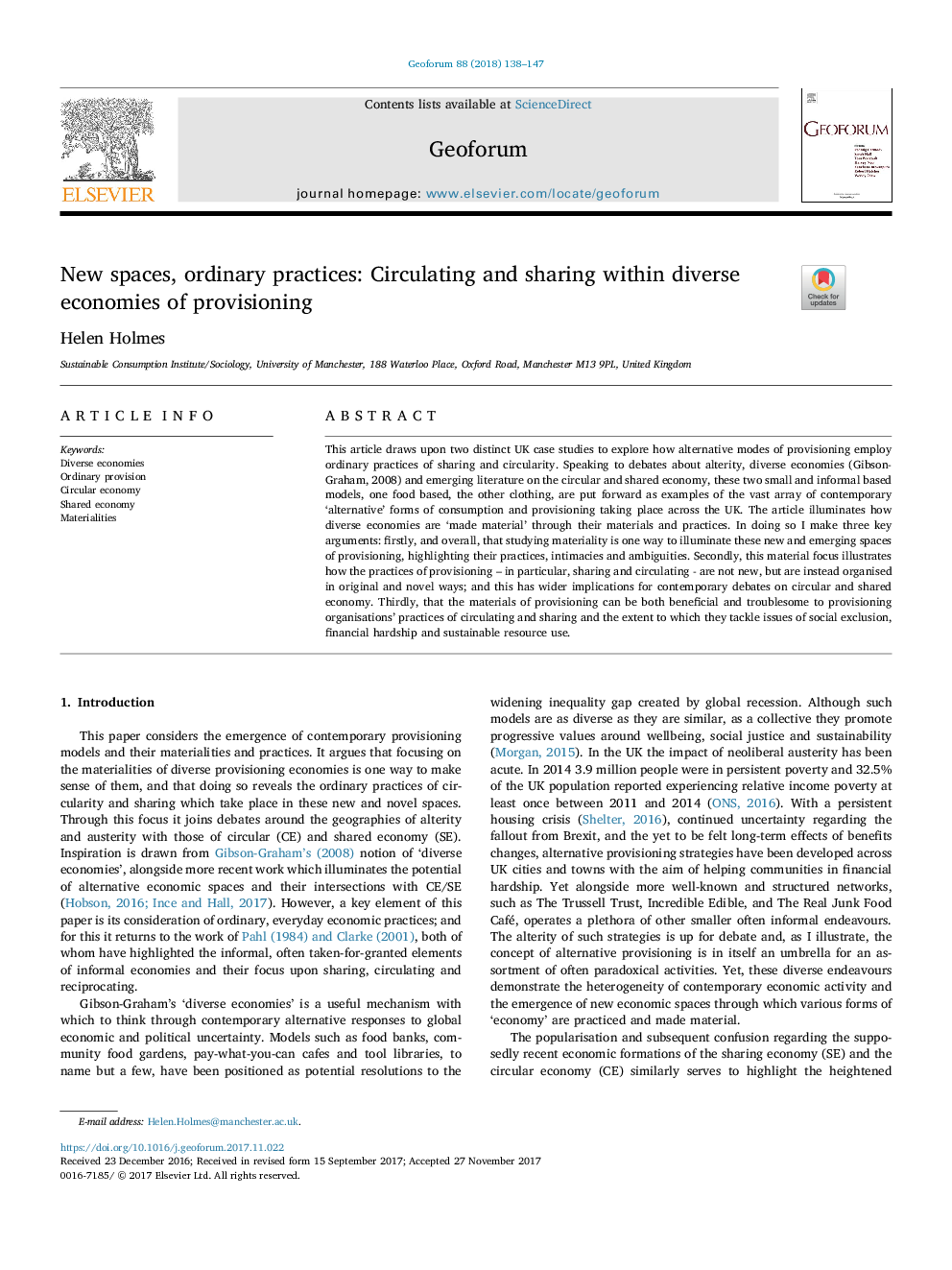ترجمه فارسی عنوان مقاله
فضاهای جدید، شیوه های معمول: گردش و به اشتراک گذاری در اقتصادهای گوناگون تأمین
عنوان انگلیسی
New spaces, ordinary practices: Circulating and sharing within diverse economies of provisioning
| کد مقاله | سال انتشار | تعداد صفحات مقاله انگلیسی |
|---|---|---|
| 136090 | 2018 | 10 صفحه PDF |
منبع

Publisher : Elsevier - Science Direct (الزویر - ساینس دایرکت)
Journal : Geoforum, Volume 88, January 2018, Pages 138-147
ترجمه کلمات کلیدی
اقتصادهای متنوع، مقررات معمول اقتصاد مدرن، اقتصاد مشترک، اهمیت،
کلمات کلیدی انگلیسی
Diverse economies; Ordinary provision; Circular economy; Shared economy; Materialities;

